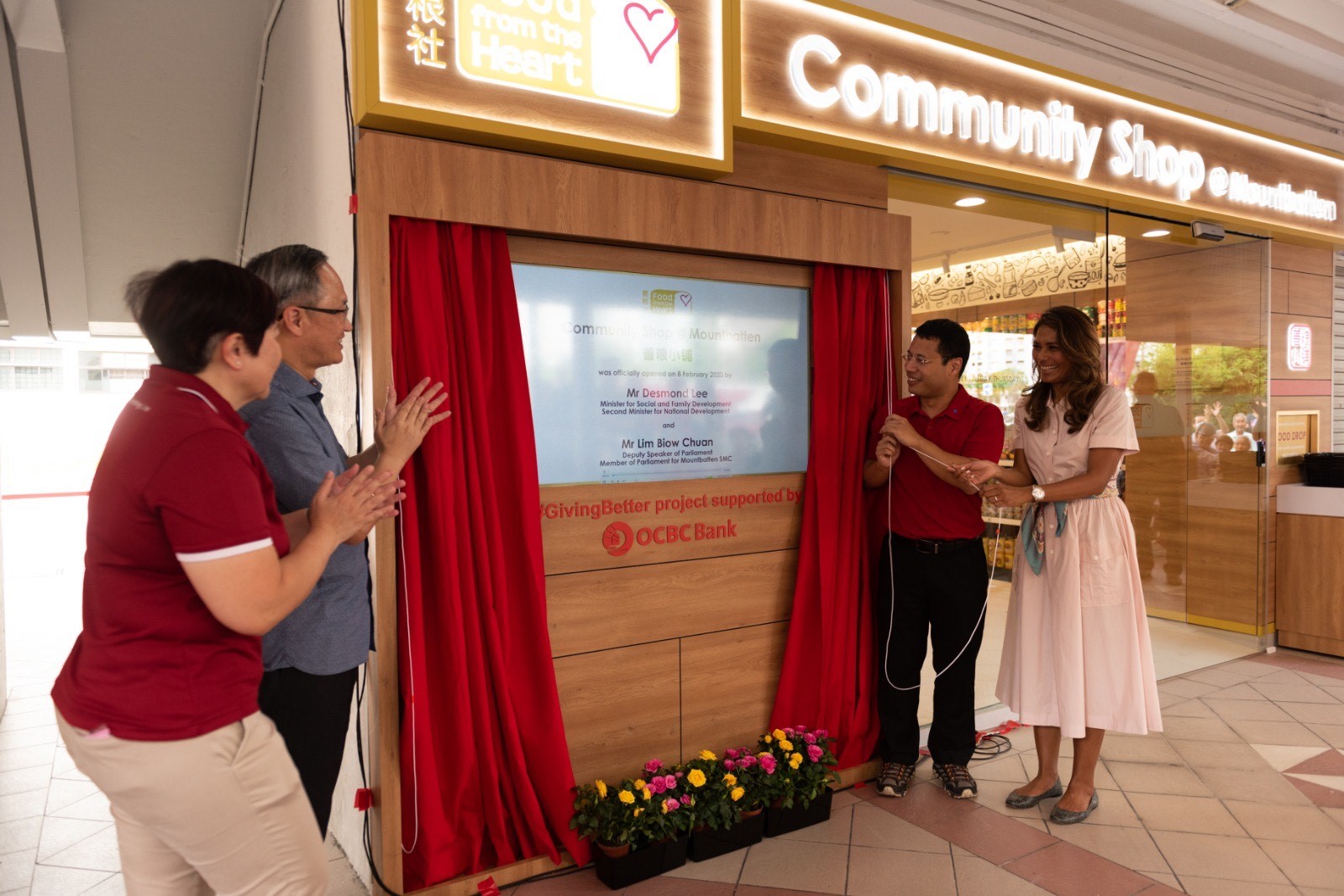Besides contribution of $300,000 to Food from the Heart; staff volunteers will help man the shop and offer data analytics expertise to understand consumption habits of 5,000 eligible households, to facilitate replenishment of high-demand and healthier food types

OCBC Bank announced that it will contribute $300,000 and volunteer support for the operation of the first community shop in Singapore. Food from the Heart has set up its Community Shop @ Mountbatten which will enable close to 5,000 eligible households to obtain preferred food items instead of standard packages from charities and kind-hearted donors that may include items they do not require. This would help minimise the stockpiling of unwanted food items and hence reduce food waste. The households that would benefit from this initiative would include those from Mountbatten SMC, Macpherson SMC and Marine Parade GRC.
The donation of $300,000 over five years will fund the shop setup, its operations, and food supplies. In addition, OCBC staff will volunteer at the shop when FFTH needs additional manpower. Supporting FFTH’s aim to better understand consumption patterns, OCBC staff volunteers will leverage their data analytics expertise to assist in a year-long exercise to capture data to guide the provision of food items that match the needs of low-income families.
As beneficiaries bag out their food selections, their consumption preferences are registered through the QR code on the card that each individual will use at the cashier counter. OCBC staff volunteers can analyse the data to offer insights, including knowing if beneficiaries are making the right food choices; preference for specific types of food or even if an individual is consistently taking food types that have high sugar or salt content. This will enable FFTH to replenish high-demand food, avoiding a mismatch of food donation; enhance public education on what to donate; and alert caregivers if individuals’ dietary habits need to be modified. Minimising food waste is in line with OCBC Bank’s efforts to help fight climate change.
Since 2017, close to 600 staff volunteers have supported FFTH in its effort to give better. Ms Koh Ching Ching, OCBC Bank’s Head of Group Brand and Communications shared,
“Over the years, FFTH’s efforts to uplift food security levels in Singapore has evolved to become more meaningful and relevant. We are glad to be able to support them in their journey of #GivingBetter to offer the needy more diverse choices.”
In 2017, OCBC Bank started supporting FFTH by providing 300,000 nutrient-rich eggs to 2,500 households monthly. To date, the on-going project has seen the distribution of close to 900,000 eggs to 3,800 unique households. In 2019, staff volunteers supported two OCBC-funded pilot projects – Project Belanja! which enables vulnerable seniors to redeem cooked food from food stalls in their neighbourhood using QR code; and sponsoring monthly packs containing kidney-friendly food items for renal patients undergoing dialysis.
Ms Koh added, “We are committed to helping the needy in a strategic manner. This community shop is another good initiative to ensure that food donations match the needs of beneficiaries; and we will consider scaling up across other parts of Singapore, if it is successful.”
Ms Sim Bee Hia, CEO, Food from the Heart said,
“The standard of living has gone up over the years for many of us. We feel strongly that our beneficiaries should also be given a lift up. They should preferably have the choice on what and when they need food items. Adopting IT solutions to understand dietary habits will also help us shape the future landscape in food distribution efforts. We hope to create an entire eco-system connecting donors, sponsors, volunteers and beneficiaries. The Shop has become a reality because of the Government’s Care & Share Matching Grant and the generosity of OCBC Bank,” says Ms Sim Bee Hia, CEO, Food from the Heart.
The Community Shop aims to return the dignity of choice to the needy to choose food items that they require, instead of standard food packages. Having a shop in the neighbourhood also encourages families to get out of their homes to have more interaction with others, and for the community to look out for one another. It operates on a shop-for-free concept. Beneficiaries can choose 12 food items from the shelves each month and these can be taken on multiple visits to lighten the load, especially for seniors. Beneficiaries are also encouraged to take only what they need, when they need them in order to reduce food wastage.










